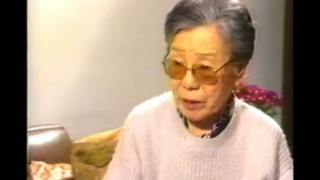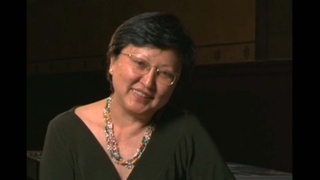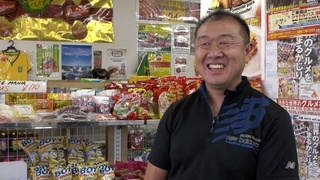Interviews
Closed Japanese community
Japanese people tend to be closed off, confined to the countryside, or rather, in the colonies, everyone is Japanese, speaking Japanese. And then, sports days and school performances are all in Japanese, for the Japanese. And, when you're in the countryside, it's hard to learn the language, and it's a different story for the second generation, but the first generation, when they have sports days or something, they all say things like "Banzai for the Emperor." And they bow facing east. I think that was very strange to Brazilians. So they thought the Japanese were closed off.
Another thing was that, in principle, marriages could only be between people of Japanese descent. Marriages with people of non-Japanese descent were extremely rare.
Date: September 19, 2019
Location: California, US
Interviewer: Yoko Nishimura
Contributed by: Watase Media Arts Center, Japanese American National Museum
Explore More Videos

Reasons for immigrating to Brazil (Japanese)
Issei, Pioneer of women's education in Brazil

Opening a Japanese-style all-girls' school in Brazil (Japanese)
Issei, Pioneer of women's education in Brazil

Brazilian of Japanese descents (Portuguese)
Former Director, Museu Histórico da Imigração Japonesa no Brasil

Japan's impact on the image of Nikkei in Brazil (Portuguese)
Former Director, Museu Histórico da Imigração Japonesa no Brasil

Change in sense of Nikkei Brazilian identity over time (Portuguese)
Former Director, Museu Histórico da Imigração Japonesa no Brasil

Nikkei community concentrated in São Paulo (Portuguese)
Former Director, Museu Histórico da Imigração Japonesa no Brasil

Changing life styles of successive generations (Portuguese)
Former Director, Museu Histórico da Imigração Japonesa no Brasil

The difference between Nikkei community in Oizumi and Brazil (Japanese)
(b. 1979) Sansei Nikkei Brazilian who lives in Oizumi-machi in Gunma prefecture. He runs his own design studio.

Not too concerned about learning Japanese when he was growing up in Brazil (Portuguese)
(b. 1962) Japanese Brazilian owner of a Brazilian products store in Japan.

The reason why he immigrated to Japan (Portuguese)
(b. 1962) Japanese Brazilian owner of a Brazilian products store in Japan.

Advantages of living in Japan (Portuguese)
(b. 1962) Japanese Brazilian owner of a Brazilian products store in Japan.

Future of the Japanese Brazilian community in Japan (Portuguese)
(b. 1962) Japanese Brazilian owner of a Brazilian products store in Japan.

The reason why the city of Oizumi became “Brazilian town” (Portuguese)
(b. 1962) Japanese Brazilian owner of a Brazilian products store in Japan.

Japanese Brazilians living in Oizumi (Portuguese)
(b. 1962) Japanese Brazilian owner of a Brazilian products store in Japan.
